People Who No Longer Feel At Home In Their Own House Usually Have These 11 Reasons
Sometimes things change in such an unexpected way that your very own house doesn't feel like home anymore.
 Juliya Shangarey / Shutterstock
Juliya Shangarey / Shutterstock Home is supposed to be the one place where you feel completely comfortable. It's the space that's meant to reflect who you are and where you can truly relax. But for some people, that sense of belonging starts to fade, sometimes so subtly that they don’t notice it until it’s gone. The house might be the same, but something about it no longer feels like theirs.
When someone no longer feels at home in their own house, it’s often about more than just the furniture or the paint colors. Losing a sense of home can be tied to emotional, psychological, and even social shifts in life. Here are some of the most common reasons people stop feeling at home in their own space, and why they can be so powerful.
People who no longer feel at home in their own house usually have these 11 reasons
1. The emotional energy in the house has shifted
 Alex Green from Pexels via Canva
Alex Green from Pexels via Canva
Even if the walls and furniture are the same, the atmosphere of a home can change dramatically over time. This might happen after a breakup, a family argument, or a major loss, all of which are events that shift the emotional “temperature” of the space.
Psychologists have noted that environments become tied to the emotions we’ve experienced there, which means lingering negativity can color how we feel about a place. Once a home feels heavy or tense, it can take intentional effort to reset its emotional tone. People often underestimate how much these subtle changes affect their comfort.
2. The decor or layout no longer reflects their identity
 Ron Lach from Pexels via Canva
Ron Lach from Pexels via Canva
Our surroundings often act as a mirror for who we are or who we think we are. When your style, priorities, or personality evolve, a home that once felt like you can start to feel alien.
When our environment doesn’t match our self-image, it can lead to lower satisfaction and even stress. That’s why some people instinctively redecorate after a significant life change. They’re re-aligning their environment with their evolving identity.
3. There’s constant visual or sensory clutter
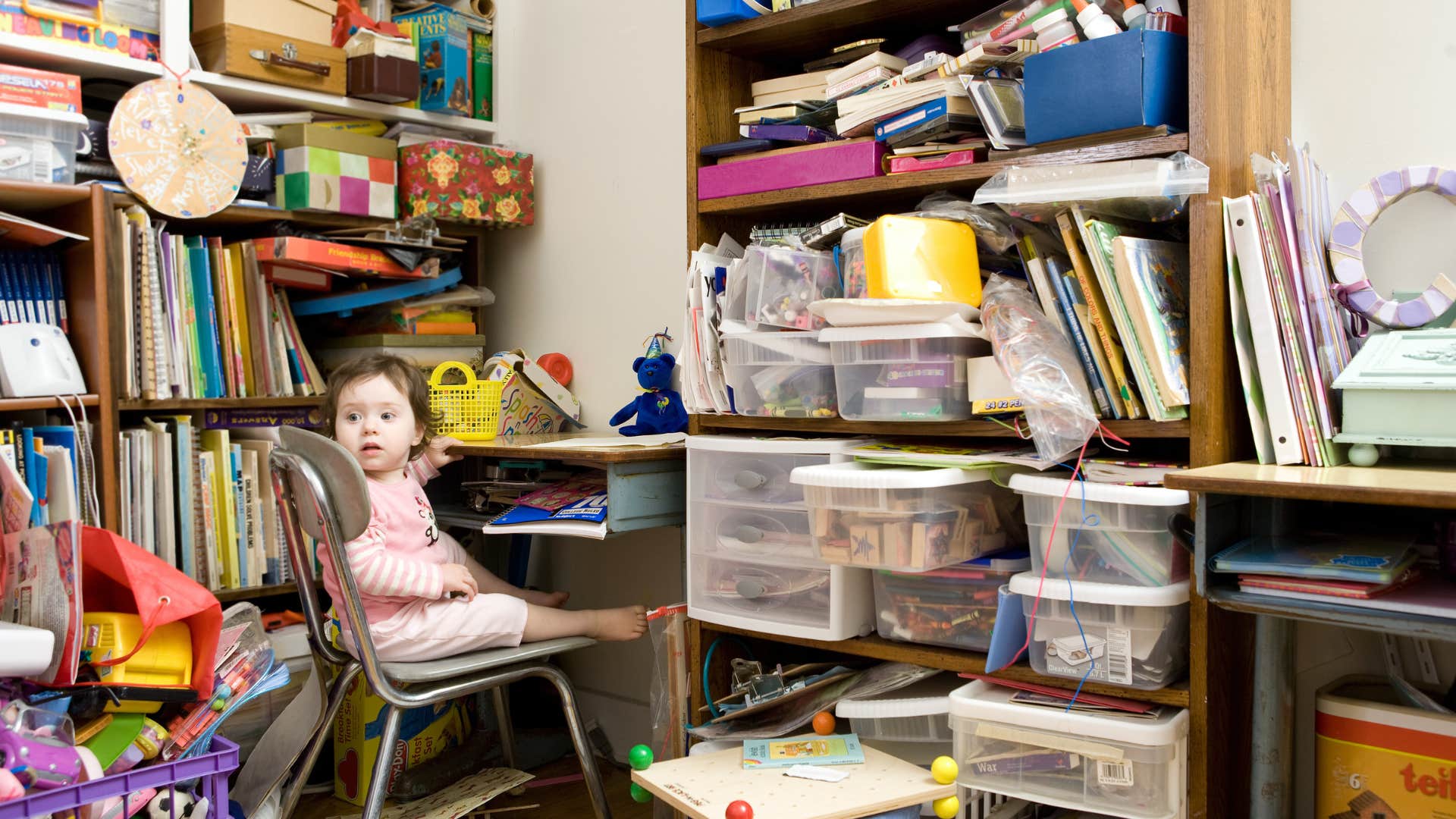 Jupiterimages from Photo Images via Canva
Jupiterimages from Photo Images via Canva
A home filled with too much noise, whether from physical clutter, visual chaos, or sensory overload, can start to feel less like a safe haven and more like a stress trigger.
Neuroscientists have found that clutter competes for our attention, making it harder to focus and relax. Over time, this makes the home feel like a place of mental overload instead of restoration. For people already feeling emotionally off-balance, that effect can be magnified.
4. The neighborhood around them has changed
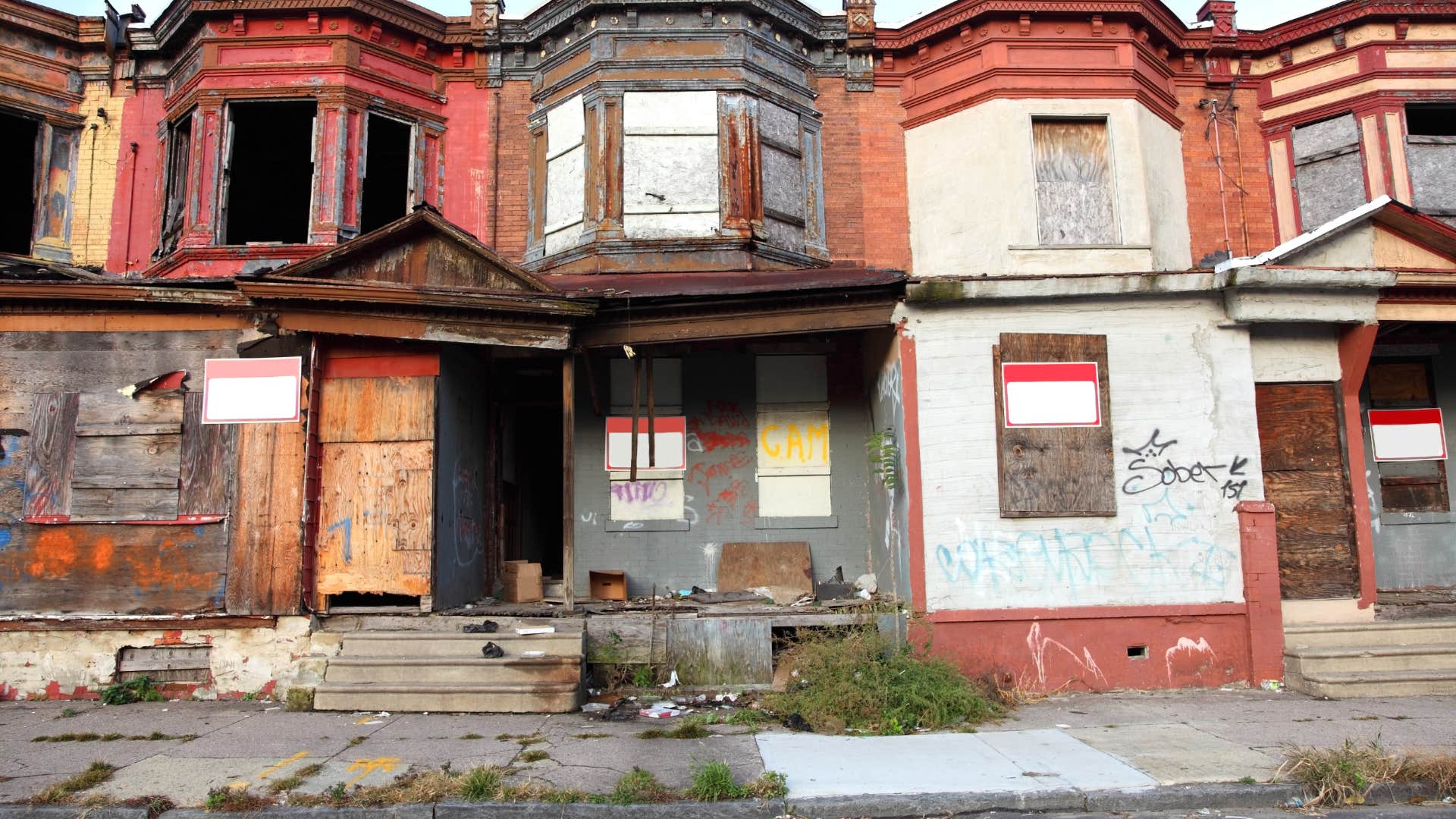 DenisTangneyJr from Getty Images Signature via Canva
DenisTangneyJr from Getty Images Signature via Canva
Sometimes, it’s not the home itself but what surrounds it. A once-quiet area might become noisy and crowded, or a friendly neighborhood might grow distant as old neighbors move away.
Changes in local safety, traffic, or even the types of businesses nearby can subtly shift how someone feels about their home. Even if the inside stays the same, the outside world bleeds in, influencing mood and sense of belonging.
5. Big life transitions have made the space feel out of sync
 Kaspars Grinvalds via Canva
Kaspars Grinvalds via Canva
Homes often feel like they belong to a particular version of us. If your life has changed drastically because your kids moved out, you started a new career, or you ended a relationship, the house may start to feel mismatched to your current life stage.
Environmental psychologists have long noted that people’s attachment to a place is tied to their sense of personal continuity. When your life shifts, the home might feel like a leftover from a chapter you’ve already closed.
6. Financial stress is tied to the house
 Mikhail Nilov from Pexels via Canva
Mikhail Nilov from Pexels via Canva
A house that’s too expensive to maintain, or one that’s been the source of repeated money struggles, can start to feel like a burden. Instead of being a refuge, it becomes a constant reminder of financial pressure.
Studies on housing stress show that financial strain related to living situations is linked to higher rates of anxiety and lower life satisfaction. That stress changes the emotional tone of the space, even if it’s beautiful on the surface.
7. The home feels too big or too small for their current needs
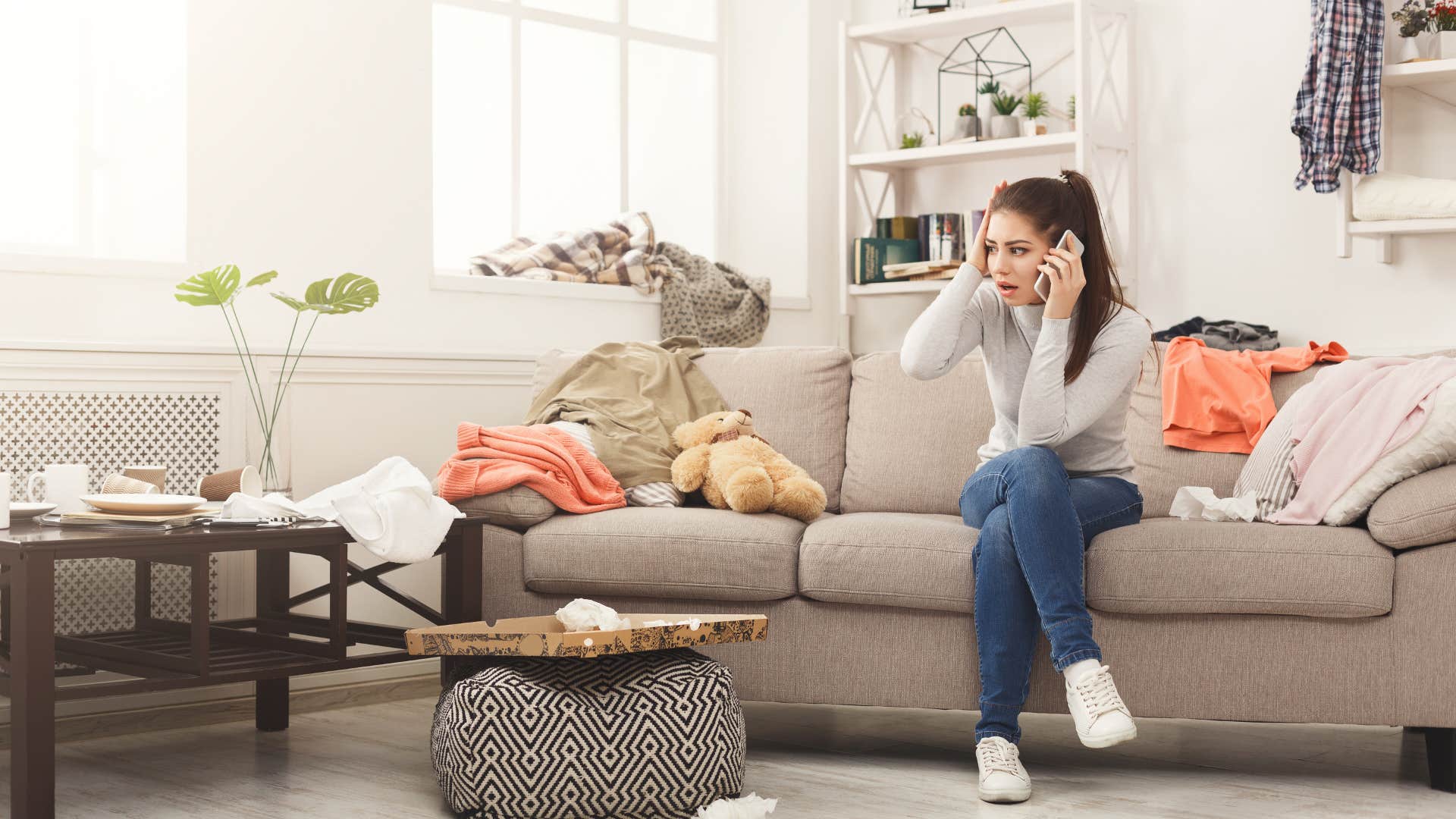 Prostock-studio via Canva
Prostock-studio via Canva
When a house’s size no longer matches your lifestyle, it can be surprisingly disorienting. Too much unused space can feel hollow, while cramped quarters can feel suffocating.
Over time, that mismatch creates a subtle but persistent discomfort. Even if nothing is technically wrong, you might feel restless or unsettled, as if the house no longer fits your life.
8. Unresolved maintenance issues make the space feel neglected
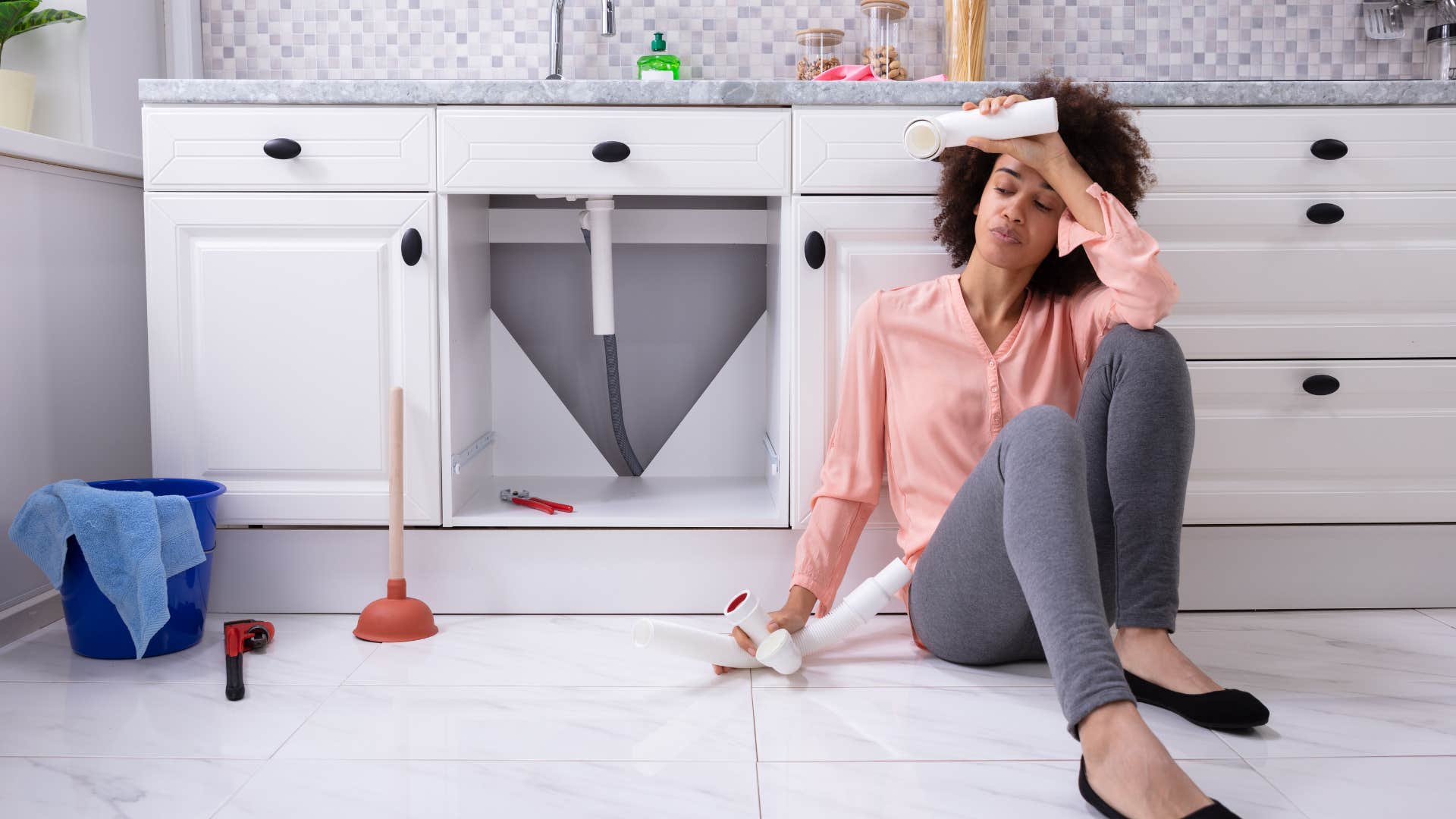 AndreyPopov from Getty Images via Canva
AndreyPopov from Getty Images via Canva
Dripping faucets, peeling paint, or lingering repairs can wear down your sense of comfort. These issues act as constant reminders of unfinished business, which can build low-level stress over time.
Behavioral research shows that minor but persistent irritants, such as home maintenance problems, can contribute to overall dissatisfaction with a living space. Even if the issues seem minor, they add up in how you emotionally register the home.
9. Memories tied to the space have soured
 dimaberlinphotos via Canva
dimaberlinphotos via Canva
For many people, certain rooms or corners of their home carry strong associations. If those associations become painful because of a breakup, loss, or difficult period, those spaces can start to feel hostile.
In some cases, people will unconsciously avoid them or spend less time at home altogether. Emotional memory is powerful, and it’s hard to “unknow” the events that shaped your connection to a place.
10. A sense of safety has been compromised
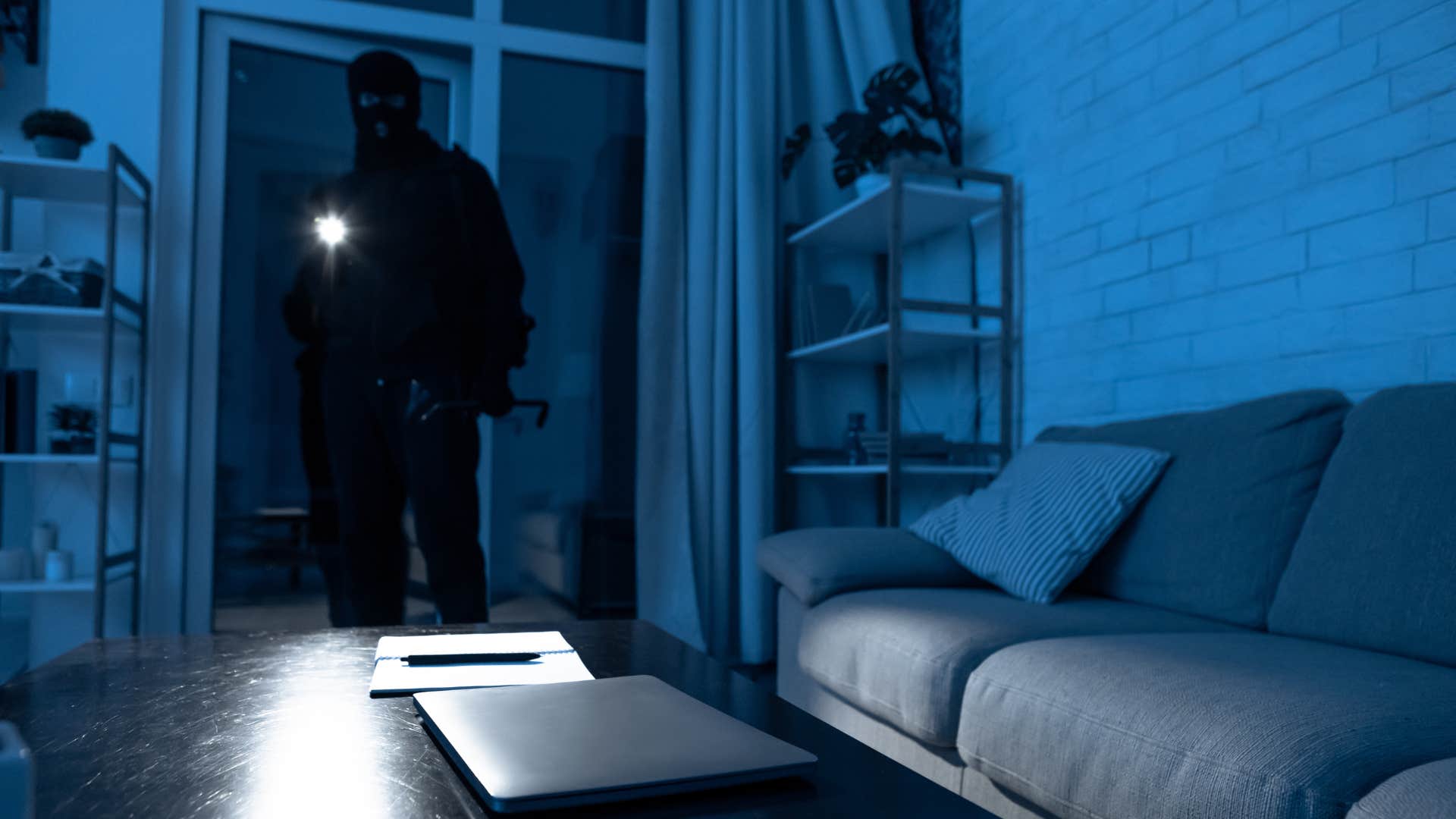 Prostock-studio via Canva
Prostock-studio via Canva
If someone has experienced a break-in, a frightening event nearby, or even a creeping sense of vulnerability, the feeling of being “at home” can vanish.
Safety is one of the most fundamental psychological needs for a comfortable living environment. Once that is shaken, it can take significant time and effort to rebuild the sense of security that makes a home truly feel like home.
11. They’ve simply outgrown it
 SeventyFour via Canva
SeventyFour via Canva
Sometimes, there’s no trauma, no obvious trigger, just a slow realization that you’ve changed and the house hasn’t. This can happen when personal tastes, routines, and values shift so much that the space no longer feels like an authentic reflection of you.
It’s not about square footage or décor, but about alignment. When that alignment is gone, the emotional connection to the home fades, even if the house itself remains objectively “perfect.”
Sloane Bradshaw is a writer and essayist who frequently contributes to YourTango.

